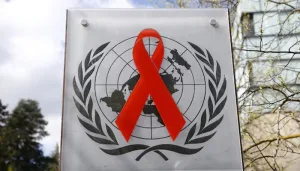Outdated Drug Laws Hindering Growth of Pakistan’s Pharmaceutical Sector
Pakistan’s pharmaceutical industry, a cornerstone of the nation’s healthcare system, is facing significant growth challenges due to outdated legislation. The primary regulatory framework, the Drug Act 1976, has not evolved to keep pace with the rapid advancements in global pharmaceutical practices. Experts believe this gap is restricting innovation, efficiency, and the growth potential of the sector.
Dr. Qaiser Waheed, former chairman of the Pakistan Pharmaceutical Manufacturers Association (PPMA), highlighted critical concerns regarding the existing law, particularly how it handles medicines that are “out-of-specification.” Unlike global practices, where such medicines are simply recalled, Pakistan’s Drug Act 1976 categorizes them as “substandard,” which can create negative perceptions about the pharmaceutical companies involved.
Impact on Business and Innovation
Dr. Waheed explained the severe consequences of this outdated terminology. “In many countries, medicines that fall out of specification are recalled without any negative stigma attached. However, in Pakistan, calling them ‘substandard’ paints a false picture of intentional malpractice. This damages the reputation of manufacturers and results in substantial financial losses, as companies incur costs for recalls and suffer long-term damage to their brand image.”
The outdated law has also led to unnecessary criminal proceedings against non-technical owners, directors, and top management of pharmaceutical companies, who often are not directly involved in manufacturing. This creates a climate of fear, deterring innovation and pushing pharmaceutical companies to reconsider their operations in Pakistan.
Multinational Companies Pulling Out
One of the most concerning outcomes of the current regulatory environment is the departure of multinational pharmaceutical companies from Pakistan. Dr. Waheed shared an alarming example of a multinational CEO who was sentenced to prison, despite being out of the country at the time of the alleged violation. Such punitive measures have caused businessmen to stay away from the sector, opting instead to invest in industries with fewer regulatory hurdles, such as food and beverage, which face far less severe consequences for product issues.
Calls for Modernizing the Drug Act
Industry leaders are calling for a complete overhaul of the Drug Act 1976, urging the government to bring the legislation in line with international standards. Experts argue that the current framework is punitive rather than supportive, discouraging pharmaceutical companies from investing in research, development, and innovation.
“We need a regulatory framework that encourages growth and innovation,” a PPMA official said. “The current law doesn’t foster a conducive environment for development—it’s about time we update it to support industry needs and global competitiveness.”
DRAP’s Efforts and the Role of SIFC
In response to these concerns, the Drug Regulatory Authority of Pakistan (DRAP), under the Ministry of National Health Services, has initiated discussions to modernize the country’s pharmaceutical laws. The DRAP policy board, which includes key stakeholders like the Secretary of Health, is working to draft reforms that can create a more practical and forward-looking regulatory environment.
In parallel, the Special Investment Facilitation Council (SIFC), a government initiative aimed at attracting foreign investment, is focusing on the pharmaceutical sector. By integrating DRAP’s reform efforts with broader policies that encourage investment, the government aims to position Pakistan as a competitive player in the global pharmaceutical market.
The Need for a Fair and Transparent Accountability System
Dr. Waheed emphasized that accountability should be based on technical grounds. “There should be clear accountability mechanisms within technical courts,” he stated, underscoring the need for a fair legal system that focuses on industry-specific issues rather than penalizing individuals without a technical background.
For Pakistan’s pharmaceutical sector to unlock its full potential—both domestically and in international markets—these legal reforms are crucial. A modernized regulatory environment will not only attract local and international investment but will also foster innovation, increase exports, and improve healthcare outcomes.
Conclusion: Transforming Pakistan’s Pharmaceutical Future
The outdated Drug Act 1976 is a major bottleneck for the growth of Pakistan’s pharmaceutical industry. To remain competitive on the global stage, the country must modernize its laws and create a regulatory framework that supports innovation, encourages investment, and ensures public health standards. With the right reforms, Pakistan’s pharmaceutical sector has the potential to become a leading player in the global healthcare industry.
#PharmaceuticalIndustry, #DrugRegulation, #PakistanHealthcare, #PharmaceuticalReform, #DrugAct1976, #MedicalInnovation, #PharmaceuticalGrowth, #HealthRegulation, #InvestmentInPharma, #GlobalCompetitiveness




+ There are no comments
Add yours